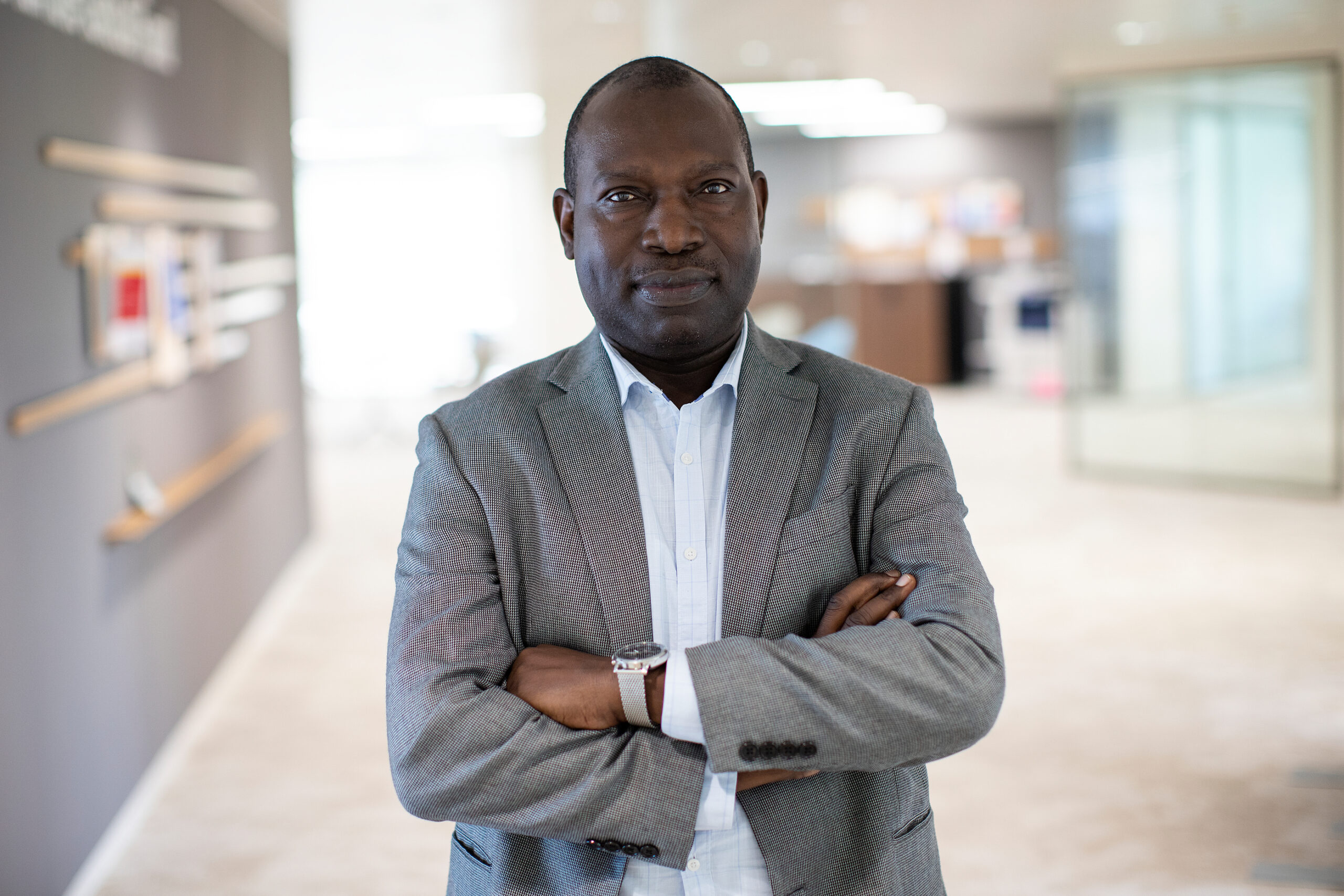March 28, 2024
During the 1990s, when Dr. Eliud Wandwalo was working as a clinician in a hospital in western Tanzania, he watched as tuberculosis (TB) tore through a ward of patients who could scarcely bear the burden of another life-threatening disease.
“The majority of people who had HIV were dying of TB,” said Wandwalo, who is now the Head of TB at the Global Fund.

Because HIV lowers a person’s immunity, people with the disease are more susceptible to developing TB, which typically attacks the lungs. TB remains the leading killer of people living with HIV, causing one in three deaths.
At the time, there were no public treatment services for HIV and the medications that existed were wildly expensive and out of reach for the average person. Most of Wandwalo’s patients faced certain death.
It was a tragedy that did not spare Wandwalo’s own family. Two of his family members had HIV. Because medication was so expensive, he realized he could not save them both.
“We wanted to save both relatives, but we did not have the funds. We made the very difficult decision to save the child, who was born with HIV,” he said
Buying antiretrovirals for the child required, literally, his entire salary.
“We had to make that life and death decision because of income,” Wandwalo said. “No one should have that kind of decision before them when there is medication available.”
He continued purchasing antiretrovirals for his relative until the Tanzanian government began distributing them for free, through programs supported by the newly formed Global Fund and President’s Emergency Plan for AIDS Relief (PEPFAR).
“The Global Fund caught my attention,” he said. “I was wondering, who are these people doing this? For me, it was extremely personal. I became the Global Fund focal point for TB in the health ministry of Tanzania. I said, ‘One day, if I get opportunity, I will work for them.’”
That opportunity eventually came, and Wandwalo has been at the Global Fund for 11 years. He oversees the partnership’s TB work, heading a team that provides technical guidance and support to country teams.
While TB continues to get less attention than HIV, he noted that the “stats are mind boggling.” In the latest data from 2022, 1.3 million people died of TB. That’s one person every 20 seconds. In addition, 10 million people became sick with TB in 2022, and 30% of those cases went undiagnosed.
“We cannot end TB while we still are generating new cases every year. We need to speak out more to make sure that people know about this disease,” Wandwalo said. “It’s a curable disease, and it’s preventable. That’s the sad part. It can be cured. It can be ended. What prevents this disease from ending is underinvestment.”
The underinvestment, he said, largely stems from the fact that TB largely impacts those living in poverty. “People who get it are not in the news, that’s why it’s the silent killer,” he said.
While the Global Fund has made incredible progress on TB – in 2022, for example, the partnership found and put on treatment more people with TB than ever before and is supporting countries to transition to shorter and more effective oral treatment regimens to fight drug-resistant TB – the risk of backsliding is real, he said. With funding headwinds going towards other areas of public health, Wandwalo said it was crucial that the world not forget about TB.
“We are not talking about the abstract,” he said. “We are talking about people’s lives.”
Learn more:
